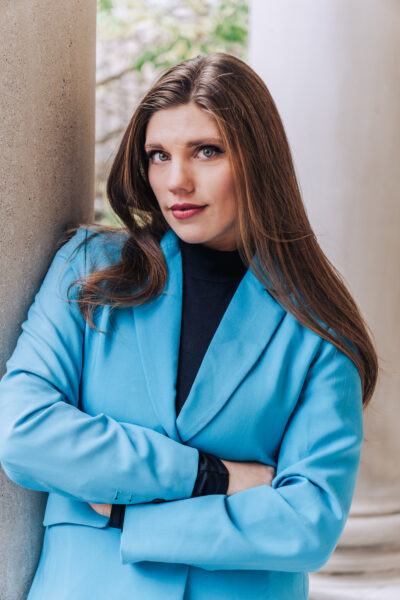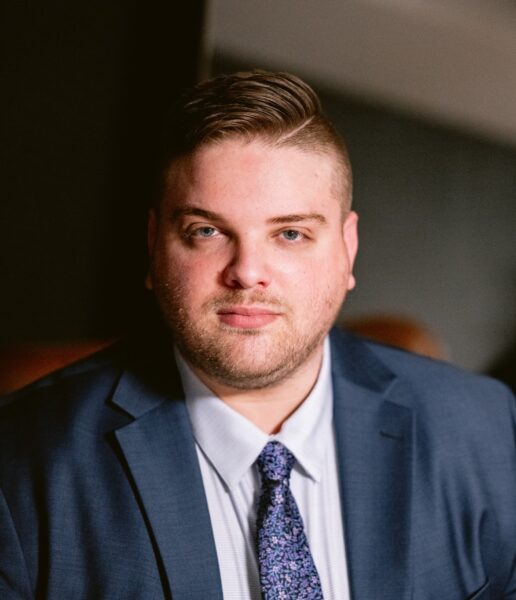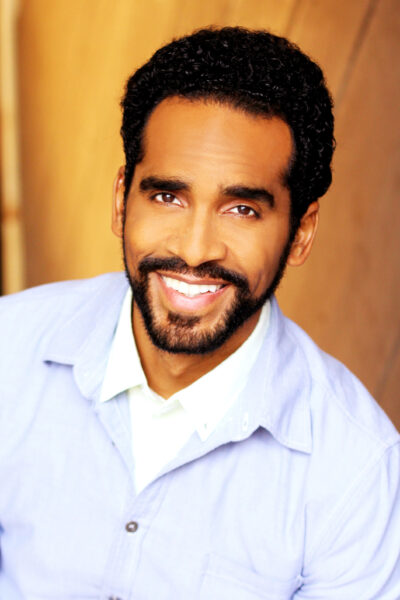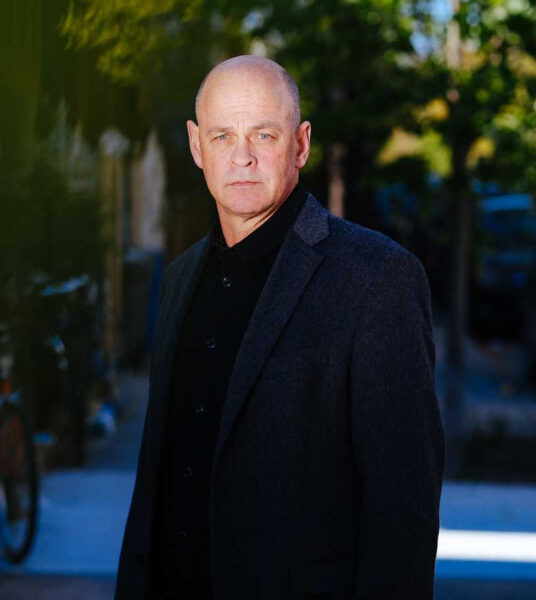“[Mr. Reed] delighted the crowd with his musical and dramatic expression, and he landed the story’s punchline like an Olympic gymnast.” –Jay Harvey, Upstage Post review of Fire Shut Up in My Bones, Opera Theatre St. Louis
Athlone Artists welcomes to its roster of artists Markel Reed, a baritone who “brings great articulate power and style” (Broadway World) to concert, recital and opera performances throughout the U.S., Canada and Europe. A passionate conveyor of the operatic repertoire, Reed has been cited for “delight[ing] the crowd with his musical and dramatic expression” (Upstage Post) in both standard and contemporary works.
Reed’s 2021-22 season opened with the premiere of Damien Sneed and Karen Chilton’s The Tongue & The Lash at Opera Theatre of St. Louis, where he portrayed James Baldwin and sang “with power and finesse” (St. Louis Post-Dispatch). Reed earned considerable praise for creating the role of Chester in Terence Blanchard’sFire Shut Up in My Bones at Opera Theatre of St. Louis in 2019 and now performs with the Metropolitan Opera’s production of the work both in the ensemble and covering Foreman/Adult James. Reed also appears at the Met in Porgy and Bess, performing in the ensemble and covering the role of Lawyer Frazier on stage and in the Met’s GRAMMY® Award-winning recording of the production.
In 2022 Reed will perform as a baritone soloist in The Hope of Loving with the New York Choral Society and sing the role of Br’er Fox in Nkeiru Okoye’s Tales from the Briar Patch with the Virginia Arts Festival.
“I love operas that take me on journeys, and I really like the hard stuff,” Reed says of his fondness for the complex characters he embodies on stage. His own journey to the stage was an unlikely one, paved with hard work, heart and intention and helped along by teachers who recognized the young singer’s extraordinary potential.
A native of Charlotte, North Carolina, Reed grew up singing in church, but always believed he was headed for a career in engineering. In high school, Mrs. Verna Clark, the drama teacher, recognized his potential and asked him to perform as a soloist for their all-women’s vocal ensemble. He was a hit. But his background was in gospel and jazz, and he had never considered classical music before. An introduction to Caldara’s 18thcentury love song, “Sebben, crudele” from G. Schirmer’s popular anthology for young singers, Twenty-Four Italian Songs and Arias, led him to fall in love with classical repertoire, and he changed his focus from the sciences to music education.
Reed headed to Oakwood University, where he met Angelique Clay, a lyric soprano and voice teacher who would cement his musical path. “She really changed my life,” says Reed. “She was integral to my learning about the craft of singing.” When Clay was offered a teaching position at the University of Kentucky in Lexington, Reed followed. He began singing as a tenor, then tried countertenor, and around the age of 26 switched to baritone. Throughout, Reed maintained an intense work schedule to pay for his education, lessons and coachings, taking up 12-hour shifts at a hospital and work at a grocery store.
“I wouldn’t say the rest was history,” he says, “because it was a very challenging time for me. But I was doing what I needed to do to make the dream of singing a reality.”
Once he had settled into his baritone voice, things started falling into place. He auditioned for the Chicago Lyric Opera, where he was hired as a part-time chorister. He took up coaching with Gerald Finley, who imparted “new tools and ways of thinking” that helped Reed get into the Young Artist program at Utah Opera, where he had the opportunity to perform roles like Masetto in Don Giovanni, Le Dancaïre in Carmen, Kromov in The Merry Widow and cover the role of Brian Castner in the western premiere of Jeremy Howard Beck’s The Long Walk.
In Utah he also met his now teacher, baritone Michael Chioldi. “Michael has elevated me as a singer and as an artist,” Reed says. “He challenges me to think for myself in a way that you don’t learn in school.” His performance calendar filled with engagements with Utah Festival Opera, Dell’Arte Opera, and the Bronx Opera.
In March 2020 Reed premiered Okoye’s Black Bottom with the Detroit Symphony, a musical depiction of a historically black community of the same name. And then the world shut down due to COVID-19. Nonetheless, Reed persevered, using the time to learn and grow by taking weekly lessons via Zoom and overhauling his website. Before long, he was busier than ever, engaged in work conceived for online viewing. He performed the role of Voodoo Man in Shirley Graham Du Bois’s 1932 opera Tom-Tom livestreamed from the Caramoor Festival; played the role of Schaunard in a 2021 filmed version of La Bohème, a co-production from companies More Than Musical, Opera Columbus, Opera Omaha, and Tri-Cities Opera; Pat in David Wolfson’s Fortune’s Children: A Zoom Opera with Hartford Opera Theater; Papageno in “A Distant Flute” from The Lighthouse Opera Company, a scaled version of Mozart’s Die Zauberflöte; and sang the title role in Don Giovanni with the Bronx Opera’s “BronxLive.” Reed embraced working with the new recording technologies, despite a steep learning curve. He acknowledges, “We lost so many people and so many things in the pandemic, but there’s a reverence for the things we’ve gained in the experience of it all.”
Early in his management search, Reed spoke with Miguel Rodriguez of Athlone Artists to get some career feedback and after six months of “real, genuine, constructive and uplifting conversations,” Reed knew he had a home on the Athlone roster. Reed is ever grateful for those who have helped him along his musical journey thus far and is enjoying every minute of his life on the stage. “I’m very cerebral,” he says, referring to his thoughtful approach to singing technique. “But I’ve had to learn how to let go of a lot of the business and technical parts of singing and remind myself about having heart and leading with intention. I have a massive joy for people who sing with intention regardless of the beauty or technical accuracy of the sound. If they sing with their spirit, and their soul, that is so gratifying. That bravery is amazing and I can learn so much from that.”







